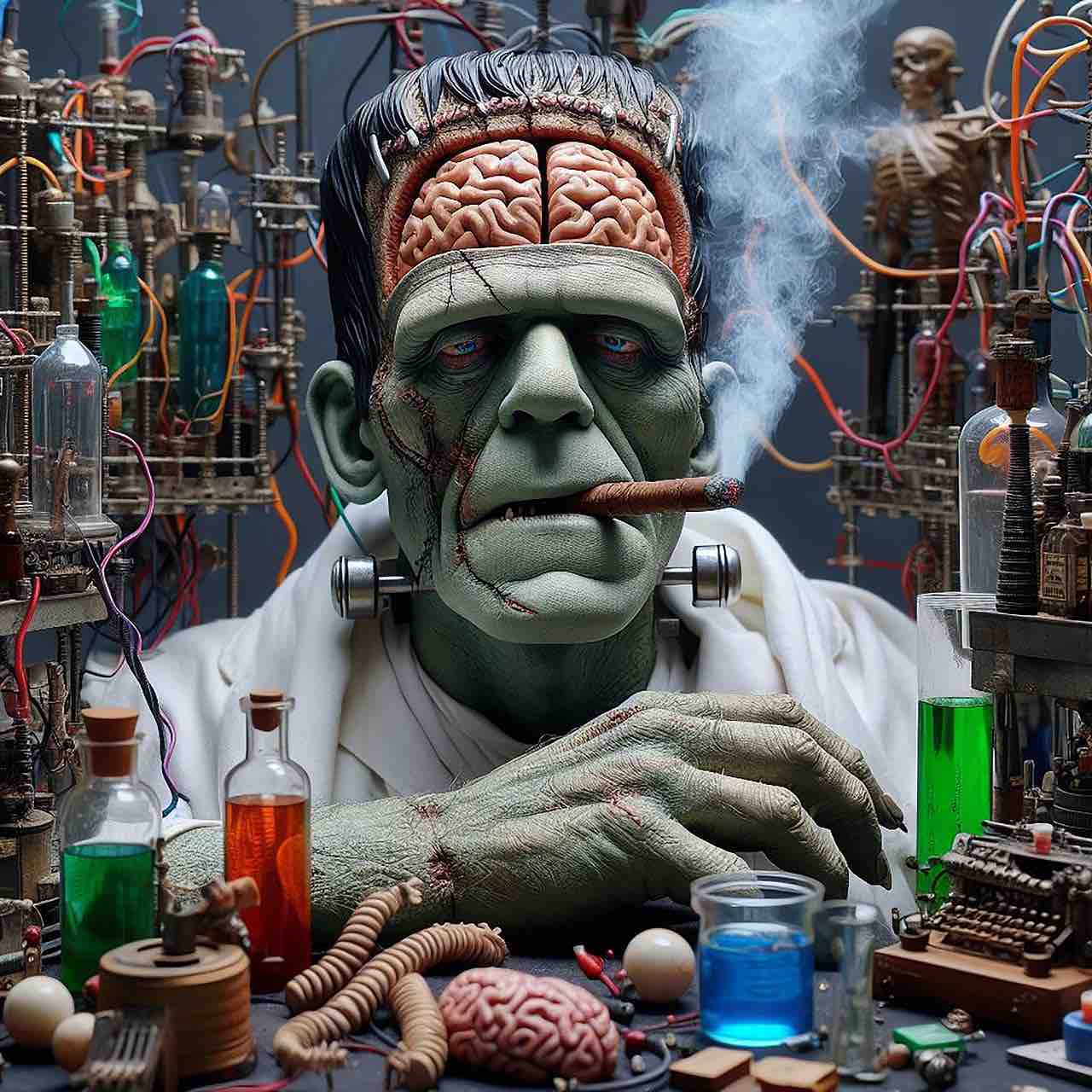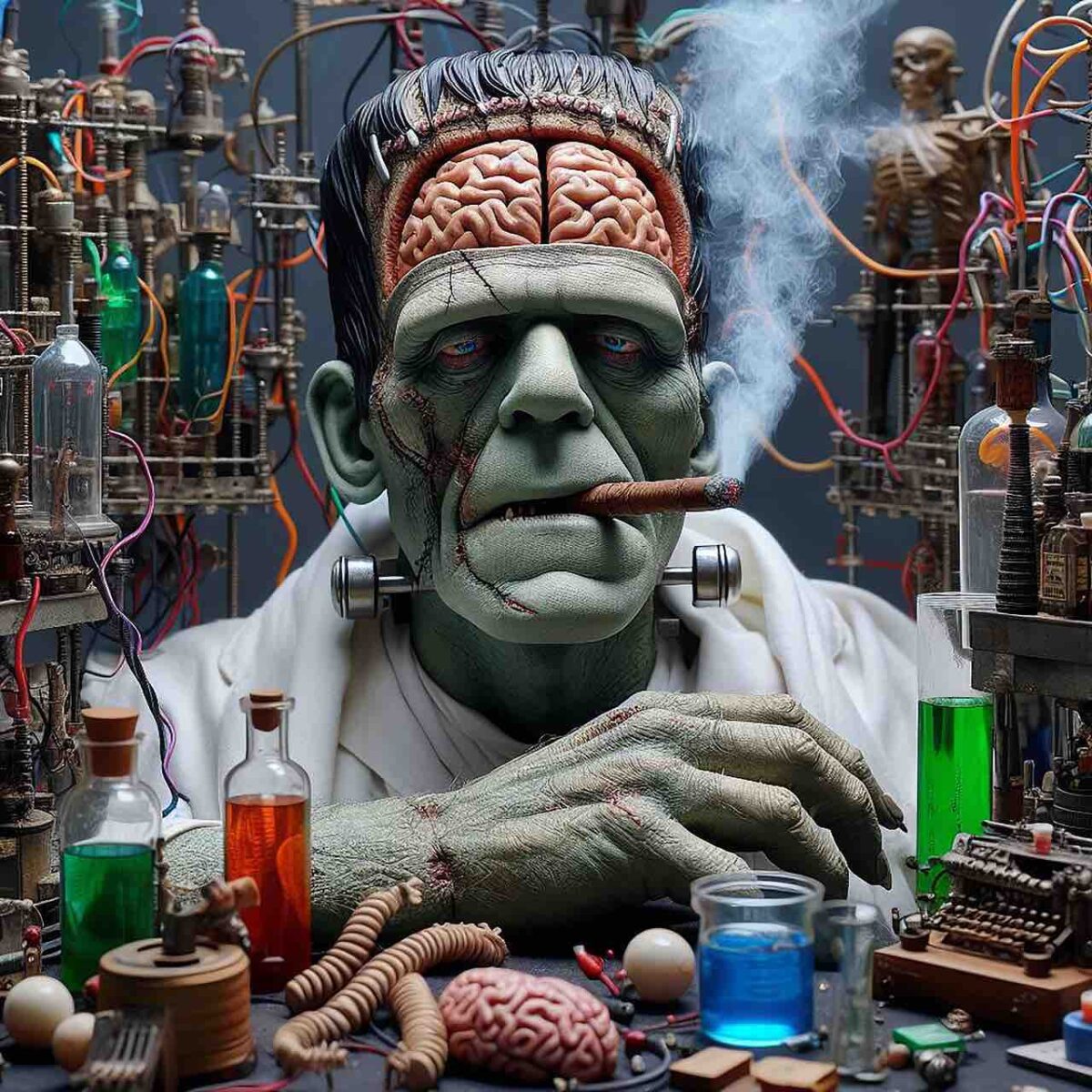
 The Lessons We Can Learn from Frankenstein
The Lessons We Can Learn from Frankenstein
Before I begin this week’s column, now is probably the time to inform my loyal readers that I will be putting an indefinite pause on the weekly publication of TRUTH: In 1000 Words or Less. Don’t worry — I’ll still be far too dogmatic and opinionated to refrain from putting columns out there from time to time, but this Fall, I will be returning to teaching full-time, which makes a more regimented writing schedule difficult to manage. And hey, maybe less of me is better in the long run anyway. At least that’s what my girlfriend tells me.
Not only will I be returning to a full-time teaching load, but I will be doing so in a subject I miss dearly: High School English. While I can hear many of you out there, including many of my former students, audibly groaning, the reality is that I simply love intellectual dialogue, especially around the topics of my favorite novels. One of those books I have always been partial to is Mary Shelley’s Frankenstein. For those of you who have never actually read this seminal novel, it is not merely a Victorian horror story about a hulking monster ravaging local villages with murderous intent. Rather, it is a prescient tale regarding the potential dangers of unchecked scientific inquiry, of diving headfirst into the murky waters of the unknown. What amazes me as I have been rereading this book for the first time in many years is just how relevant it is right here and now. In fact, while Shelley may have penned this novel during an 1815 excursion to Switzerland, it is as applicable today as it was two hundred years ago when it was published.
Due to iconic film moments of Victor Frankenstein shouting “It’s alive!” at the moment of his creature’s animation (a scene that is actually not part of the original novel itself), most of us are at least familiar with the novel’s central premise. In it, Victor Frankenstein, consumed by the processes of scientific inquiry and the mysteries of the nature of human life, gives life to an inanimate corpse, pieced together from bodies he plunders from a nearby graveyard. But the experiment, of course, goes horribly wrong. While Frankenstein embarks on this endeavor with lofty ideals of expanding human knowledge, we are to understand that it is his reckless pursuit of knowledge without pausing to consider the ramifications of obtaining said knowledge that leads to the tragic outcomes that define the story from the moment of his successful accomplishment. And it is this element of Frankenstein that might be as prognostic now as at any point in human history.

When I have taught this novel previously, I have related its foreboding cautionary tale to numerous scientific discoveries of the 20th century. Cloning, genetic modification, and nuclear proliferation have all been worthy topics for consideration in relation to the novel’s warning about the unchecked progress of scientific advancement. In this vein, Christopher Nolan was clearly echoing a similar refrain in his evocative film Oppenheimer last summer, reminding us of the unalterable consequences thrust upon humanity when science discovers technologies that we may have been better off not knowing. But as much as the Frankenstein story speaks to each of these issues with remarkable insight, where we stand today on the cusp of technologies that could transform human existence forever going forward makes the novel even more significant now than it was when the first atomic weapon was being built.
That’s because as much as nuclear proliferation has altered the geopolitical landscape for the better part of a century, given the potential for the annihilation of the entire human race, we stand on the precipice of a species-altering revolution with the recent developments in the field of artificial intelligence. Suddenly, we find ourselves on the verge of technologies with far-reaching impacts that we are only beginning to fathom.
Let’s face it — we have no idea what artificial intelligence might mean or where it might lead. What we do know is that this thing is learning from itself continuously, which is a hell of a lot more than I can say for your average high school student. This has led some researchers, including Robert Long at the Center for AI Safety, to speculate that AI might achieve consciousness sometime within the next decade. He and his team at the San Francisco-based nonprofit have compiled a 14-point list that would demonstrate AI consciousness and suggest that current AI models have already achieved a couple of these primary indicators. Like Frankenstein, we are on the brink of creating new life, a form of consciousness commensurate with our own. Does that mean the machines will take over in some sort of Terminator-style hostile takeover? None of us really know, but if we can take anything away from Shelley’s novel, the created life form is not always universally grateful for its having been given life in the first place.
But the even more apocalyptic point we can take from Frankenstein regarding artificial intelligence comes in the form of Victor’s impulsive and ill-advised pursuit of knowledge without consideration for the possible repercussions. The novel serves as a cautionary tale of the unchecked quest for scientific understanding. As we plunge into the world of artificial intelligence, we would be wise to put the brakes on just enough to have ample time to contemplate and grasp the future implications of what AI might mean for humanity. But we all know that just isn’t going to happen. Even though ChatGPT debuted less than two years ago, it already has over 180 million users and is growing. One thing human beings are not good at is putting the genie back in the bottle. Once that genie is out there, it is only going to expand at the unbridled pace that a free market will afford it. Which means that we are just creating our own potential monster with all the capability it needs to be our own undoing.
Steven Craig is the author of the best-selling novel WAITING FOR TODAY, as well as numerous published poems, short stories, and dramatic works. Read his blog TRUTH: In 1000 Words or Less every THURSDAY at www.waitingfortoday.com




